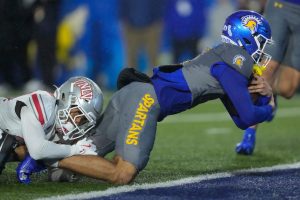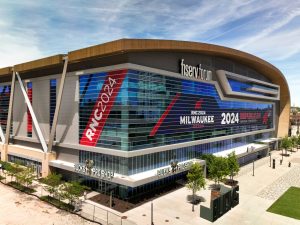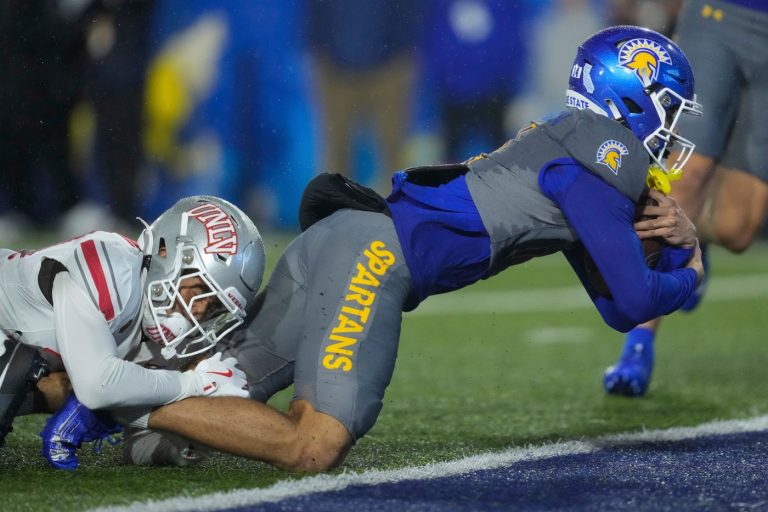Less than three weeks after the terrorist attacks of Sept. 11, 2001, federal prosecutors in San Diego filed felony immigration fraud charges against Omar Ahmed al-Bayoumi, a Saudi national and alleged intelligence agent who had lived for years in Clairemont and had helped two al-Qaeda hijackers settle in San Diego.
But for nearly 23 years the criminal immigration case against Bayoumi, filed in U.S. District Court in San Diego, had remained sealed. That changed Tuesday, when an assistant U.S. attorney asked for the case to finally be unsealed. A judge granted the request.
The charges outlined in the newly public criminal complaint do not link Bayoumi in any way to the 9/11 attacks, instead alleging that he fraudulently filed immigration documents that he knew contained false information on two occasions in 1997. But the timing of when the case was filed reiterates, as has long been known, that Bayoumi was in the crosshairs of federal investigators just days after 9/11.
A spokesperson for the U.S. Attorney’s Office in San Diego declined to comment on the reason for unsealing the case this week. But the move, which is largely procedural, is believed to be related to a massive and long-running federal lawsuit in New York alleging the Kingdom of Saudi Arabia supported the 9/11 terrorists.
The Saudi government has denied that it played any role in the 9/11 attacks and has asked for the lawsuit, filed by the families of 9/11 victims, to be dismissed.
Dozens of filings in that lawsuit in recent months pertain to the fight for public access to sealed records and exhibits. Sean Carter, an attorney for the 9/11 families, said he was not privy to the exact reasons the Department of Justice unsealed the Bayoumi immigration case in San Diego but assumed it was related to the wider effort to unseal more records in the New York civil case “given the timing and surrounding circumstances.”
9/11 hijackers Nawaf Al-hazmi (left) and Khalid Al-mihdhar (FBI Photo)
Bayoumi, who is now in his mid-60s, has emerged in recent years as one of two central figures in the legal effort by the 9/11 families to link the Saudi government to the September 2001 terrorist attacks. He has told investigators in the past that he met Nawaf al-Hazmi and Khalid al-Mihdhar during a chance encounter at a Los Angeles restaurant, then helped them settle in San Diego. Hazmi and Mihdhar were two of the five al-Qaeda operatives who hijacked American Airlines Flight 77 and crashed it into the Pentagon.
FBI documents declassified in 2022 asserted for the first time that Bayoumi was an agent of the Saudi intelligence service who worked for the powerful Saudi Ministry of Islamic Affairs. And in May, attorneys representing survivors and the families of 9/11 victims laid out the most exhaustive accounting yet of Bayoumi’s alleged role as a Saudi agent who knowingly supported the terrorists.
“Based on new intelligence not available to the 9/11 Commission or at the time of the FBI-CIA Joint Assessment, the FBI definitively determined in 2017 that Bayoumi was a ‘cooptee’ of Saudi intelligence who received a monthly stipend from the Saudi government,” the 9/11 victims’ families alleged. “… Throughout the time he was in the United States and operating with the false cover and funding streams provided by Saudi Arabia, Bayoumi played a central role in coordinating and supporting the (Ministry of Islamic Affair’s) extremist program in Southern California, including by hosting extremists with ties to Al Qaeda.”
The families and their attorneys argue that evidence developed in their civil case and investigative files that have been made public after a 2021 executive order by President Joe Biden “provides overwhelming evidence that Bayoumi … and additional Saudi government officials and agents were acting within the core of their functions for the Kingdom of Saudi Arabia in coordinating an essential support network for pro-jihadist extremists, including the first-arriving 9/11 hijackers, Nawaf Al Hazmi and Khalid Al Mihdhar.”
The San Diego ties to the 9/11 attacks first became apparent on Sept. 12, 2001, when investigators found an abandoned car registered to a home in Lemon Grove at Dulles International Airport near Washington, D.C. The flight that the hijackers crashed into the Pentagon, killing all 64 passengers and 125 people on the ground, had departed from the airport.
Investigators soon learned Hazmi and Mihdhar, who were on that flight, were the first hijackers to come to the U.S., arriving in January 2000 in Los Angeles before settling in San Diego. Their link to San Diego was Bayoumi, who was well-known in the local Muslim community. He lived in a Clairemont apartment with his wife and children and claimed to be a student, yet was never observed taking classes.
Bayoumi hosted a party for Hazmi and Mihdhar when they first arrived in San Diego. Bayoumi let the duo stay with him in his unit at the Parkwood Apartments on Mount Ada Road for a few days before setting them up in a nearby unit. He co-signed their lease and paid their first month’s rent, though he was reportedly reimbursed.
Omar al-Bayoumi and two 9/11 hijackers lived in the Parkwood apartment complex on Mount Ada Rd in Clairemont. Photographed on Sept. 14, 2001. (Sean M. Haffey / The San Diego Union-Tribune)
Related Articles
Threats of terrorism in the US are ‘more diverse and difficult to counter’
8 people with suspected ties to the Islamic State arrested in California, New York and Pennsylvania
Man who firebombed California Planned Parenthood clinic gets 6 years in prison
Families of Israeli hostages release video of their capture by Hamas
French police shoot, kill suspect in synagogue arson
Hazmi and Mihdhar, who took flight lessons in San Diego, later moved into a home in Lemon Grove. Mihdhar left San Diego County in June 2000, returning to Yemen for a time before returning to the U.S. ahead of the attacks. Hazmi left the San Diego area in December 2000 with another hijacker who spent just a few days here. They spent several months in Arizona before heading east to Virginia to meet with the other hijackers.
Bayoumi left the U.S. for England about two months before the attacks. He was detained by British authorities in mid-September of that year but later released. He has since returned to Saudi Arabia.
On Sept. 28, 2001, federal prosecutors filed the criminal charges against Bayoumi. An agent with the now-defunct Immigration and Naturalization Service wrote in an affidavit that Bayoumi, who was in the U.S. on a student visa, provided false documentation about the source of his financial support.
Because Bayoumi has never returned to the U.S., the case has sat dormant for nearly 23 years, with just five mostly procedural entries on the docket. One entry remains sealed. The case does not appear to be closed, so Bayoumi could be arrested on the charges in the extremely unlikely scenario that he returns to the U.S.












